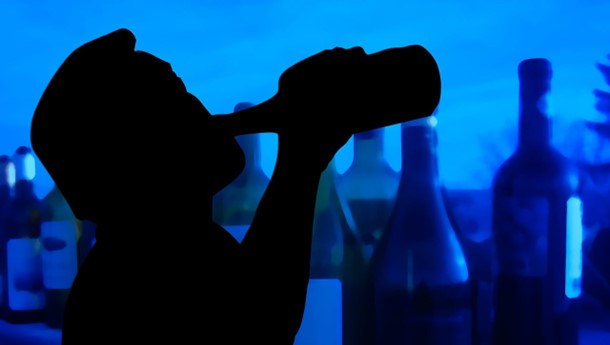Drinking alcohol is widely accepted as part of socializing, celebrating, and unwinding. For some people, drinking alcohol is a means of escaping problems or drowning sorrows. Unlike many illicit drugs, alcohol does not create immediate dependence. However, a couple of drinks can eventually turn drinking alcohol into a coping mechanism. The occasional drinking can turn into frequent overconsumption, potentially leading to Alcohol Use Disorder (AUD). This can then lead to a host of physical and mental health issues.
How Alcohol Affects the Brain and Behavior
The 2022 National Survey on Drug Use and Health reports that 753,000 Americans aged 12 to 17 had AUD in the past year. This is particularly worrying because adolescent brains are more vulnerable to the negative impacts of alcohol. Drinking too much at this age can lead to long-lasting changes in brain structure and function.
Overall, alcohol interferes with the brain’s communication pathways. It affects the parts of the brain that control balance, speech, memory, and judgment. Over time, chronic alcohol use can lead to lasting changes in brain structure and function, contributing to cognitive decline and alcohol dependence. This results in an increased likelihood of negative outcomes when intoxicated such as:
- Slurred speech
- Irregular sleep patterns
- Injuries due to impaired coordination and motor skills
- Alcohol-induced blackouts
- Aggression and impulsive behavior
Reckless behavior due to reduced inhibition
Effects of Alcohol On Mental Health
Alcohol is a psychoactive substance that affects physical and mental well-being. It has some initial stimulant effects like increased heart rate, energy boost, and lowered inhibitions. However, alcohol is technically classified as a depressant as it affects the neurotransmitter GABA (gamma-aminobutyric acid). This is when slurred speech, coordination problems, drowsiness, and slow mental processing kick in.
Alcohol and mental health are closely intertwined. Over time, excessive drinking can deplete the brain chemicals that keep us mentally healthy. Many people with mental health issues use alcohol to cope or mask their symptoms, which can lead to alcohol dependence and AUD, creating a vicious cycle. The effects of alcohol on mental health can vary based on:
- Amount of alcohol consumed
- Frequency of drinking
- Age and gender
- Individual’s genetic makeup
- Overall physical health
- Pre-existing mental health conditions
- History of alcohol use
- Social and environmental factors
Alcohol and Mood Swings
Alcohol initially acts like a stimulant by triggering brain receptors to release dopamine, creating feelings of pleasure. However, with continued use, the brain adapts, reducing its natural dopamine production. This can lead to prolonged periods of low mood and difficulty experiencing pleasure without alcohol. Essentially, what starts as a way to feel good can eventually cause unpredictable mood swings. This can also lead to a cycle of needing more alcohol to achieve the same amount of pleasure, impacting overall mental well-being.
Alcohol and Depression
Alcohol and depression are complexly linked. Between 27% to 40% of people with depressive disorders also struggle with AUD at some point in their lives. While drinking alcohol and dealing with depression can amplify each other’s impact, alcohol misuse often plays a significant role in causing these issues. Many people turn to alcohol to ease depression and lift their mood temporarily, but this can worsen mental health in the long run.. This sets off a harmful cycle where alcohol use and depression feed into each other.
Alcohol and Anxiety
Among those treated for anxiety disorders, a significant portion—between 20% and 40%—also deal with alcohol use disorder (AUD). This connection often stems from alcohol’s initial ability to temporarily ease stress. However, the next-day effects, known as hangxiety, typically heighten anxiety levels. Alcohol alters serotonin and other neurotransmitter levels in the brain, worsening long-term anxiety issues. Using alcohol to cope with anxiety can make anxiety worse over time, making it harder to treat both anxiety and alcohol problems.
Alcohol and Panic Attacks
Alcohol can exacerbate the frequency and intensity of panic attacks. While it can initially numb feelings of fear or worry, alcohol is a depressant that can intensify anxiety and even trigger panic attacks in the long run. This is because it disrupts your brain’s chemistry and makes it harder to regulate emotions. Additionally, alcohol can impair judgment and lower inhibitions, potentially causing individuals to engage in behaviors or face situations that trigger panic attacks. Over time, this cycle of relief and subsequent exacerbation can make managing anxiety even more challenging.
Alcohol and Psychosis
Alcohol-induced psychosis is a rare but serious consequence of excessive alcohol consumption. While usually temporary, it can be very dangerous. It can happen after intoxication or during withdrawal from prolonged, excessive drinking. It can also be chronic among those with AUD. This condition manifests through hallucinations, delusions, and impaired cognition, posing serious dangers to those affected.
Alcohol and Self-harm
Self-harm is not a disorder in itself. It is a behavior that may be a symptom of an underlying mental health issue like depression, anxiety disorders, PTSD, borderline personality disorder and eating disorders. Alcohol misuse increases the risk of self-harm by lowering inhibitions and clouding judgment, making it easier to act on harmful thoughts.

FAQ
When does drinking become a problem?
Drinking becomes a problem when it starts affecting daily life, relationships, and responsibilities. Signs include frequent cravings, inability to control consumption, neglecting obligations, experiencing withdrawal symptoms, or using alcohol to cope with stress and emotional issues.
Why do we drink alcohol if it is bad?
We drink alcohol despite its drawbacks because it often provides temporary relief from stress, social enjoyment, and relaxation. Additionally, cultural norms and social pressures can make drinking seem appealing or acceptable, even when its risks are acknowledged.
Can alcohol damage the brain?
Yes, alcohol can damage the brain. Excessive and prolonged alcohol use can lead to cognitive impairments, memory problems, and changes in brain structure and function, impacting overall mental and physical health.
How do you help someone struggling with alcohol?
If someone you care about is struggling with alcohol, you can make a big difference by offering support while not condoning their actions, urging them to seek professional help or join groups like AA, and showing patience and empathy as they work towards recovery.
Start Your Recovery with Positive Sobriety Institute
At Positive Sobriety Institute, we understand that alcohol use disorder often co-occurs with mental health conditions. That’s why our addiction recovery program in Chicago, IL addresses both physical and emotional well-being and treats co-occurring mental health and substance use disorders. With expert guidance, evidence-based therapies, and a caring community, we provide a comprehensive approach to recovery.
Don’t let alcohol define you. Request a consultation today and take the first step towards lasting change.


